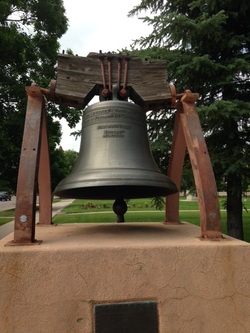
Effective leadership is anticipatory rather than reactive. Great leaders have the ability to observe and assess situations and plan accordingly. They have proficient skills at training and mentoring others in the organization to also be proactive leaders. Finally, effective leaders encourage healthy conflict among team members to ensure that ideas and issues are discussed thoroughly and honestly. This typically leads to good decision making.
Reactionary leadership in Ferguson, Missouri by local, state, and federal officials—all the way up to the U.S. Attorney General and the U.S President—has primed the pump for a worst case scenario to take place. The racial tensions in the St. Louis area have always been quite high, and this latest conflict between Ferguson police and the black community simply exposes the fragile nature of race relations. Unfortunately, government leaders have frequently been viewed as part of the problem rather than part of the solution through this prolonged episode of real-life drama. The question that sticks in my mind is a simple one. How will things change in the future? Once the verdict is announced from the Grand Jury and the dust settles, what will ultimately change? How will leadership at the local level, as well as state and federal agencies, move forward following these months of tension and violence? What will have been learned?
As I attempt to put the chaos of Ferguson, Missouri into context, I can’t help but think of the chaos on a wider scale created by failed leadership in regard to the immigration issue. The political aspect of the immigration issue is huge, and one’s political leanings will greatly impact what a person thinks about the president’s speech on Thursday, November 20, 2014. I don’t want to dwell on the pros and cons of immigration. That is a debate for another time. However, I want to look at the processes and methodologies being utilized by the president. Is it good leadership to unilaterally make this move?
Our Founding Fathers were quite wise in developing a system which had such a distinct separation of powers. They understood the potential for a misuse of power. Even if the actions to be taken by the president in regard to immigration are within constitutional standards, does anyone view this as good leadership? Who is responsible for gridlock? What is the role of a leader in government? The inability to work with people who have opposing views is detrimental to the well-being of any organization, business, or country. Republicans can blame Democrats; Democrats can blame Republicans. In the end, if John Maxwell is accurate in regard to everything rising and falling in regard to leadership, the leader of the country may need to look in the mirror for clarity about the failed attempts to get things done.
It is no doubt that the issues are complex. In no way am I minimizing the difficult task of a leader, especially the leader of a country such as the U.S.A. However, the glaring inconsistencies of this administration between the words spoken and the actions taken are alarming under any circumstances. I will be honest. I cringed numerous times during the brief speech of the president. Commentators affirmed many of my ill feelings after the speech was over. In particular, it was interesting to see what the president said a few years ago on numerous occasions about not having the constitutional authority to act on his own, and now he was doing just that. It’s amazing what a difference a few years can make.
As he referred to “ripping” families apart by deportation, the image of an unborn baby being “ripped” from the womb immediately entered my mind. In his mind that kind of ripping is apparently okay. Remember his words, “God bless Planned Parenthood.” Although the president quoted Scripture during his speech to win me over, I was not impressed. Anyone can quote Scripture. Living by the principles contained therein is another matter indeed.
Speculation about the long-term consequences of the president’s actions is in full swing.
Is it constitutional?
Will it encourage more illegals to enter the country?
Does it create easier opportunities for terrorists to enter our country?
What does it mean for individuals and families trying to enter the country legally?
What will this do to our job market?
What impact will it have on our over-all economy?
According to the United States Conference of Catholic Bishops website, “Bishop Eusebio Elizondo, M.Sp.S., auxiliary bishop of Seattle and chairman of the U.S. Conference of Catholic Bishops (USCCB) Committee on Migration, welcomed the news today that the Obama administration will defer deportations for many undocumented immigrants and their families.” I understand the desire to be compassionate, and I realize that failed leadership for years has in many ways created the chaos we currently have in place. However, I would encourage serious reflection before celebrating too boisterously. What are the long-term ramifications of unilateral action by a president?
Why do I raise this question? Look at the HHS Mandate of the Affordable Care Act. Many dioceses and Catholic organizations have filed lawsuits against the government. The president has repeatedly, on his own, changed rules without congressional approval. How has that worked out for religious freedom? Do we want unilateral action by the president when it seems to fit in our personal agenda but resist it when it does not? We can’t have it both ways.
Bishop Elizondo may welcome this current news about immigration, but I would urge a restrained exuberance. The consequences of these actions go far beyond the issue of immigration. It has the potential to obliterate the republic form of government that we have enjoyed for over 200 years. Is that an exaggeration? We shall see. Failed leadership can result in some devastating consequences for the rest of us.
 RSS Feed
RSS Feed
